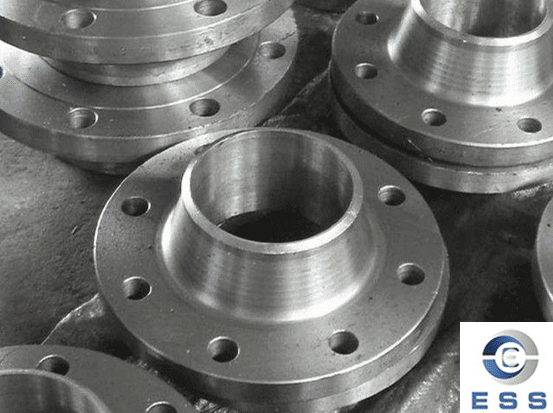
When Does The Pipe Flange Need Static Jumper?
The role of static jumper
In industrial production, due to the flow
of the medium, the fluid or gas in the pipeline will generate static charges
through friction and separation between the medium. At the same time, due to
the frequent installation and disassembly of pipe fittings in the pipeline,
potential differences will also be generated. The accumulation of these charges
and potential differences may cause the generation of static sparks, leading to
major dangers such as explosions and fires. In order to eliminate these dangers,
static jumper is required.
Static jumper is a method of
interconnecting potential differences and charge paths through conductive
materials. It can form a closed loop so that current can flow to the ground,
thereby eliminating static charges and avoiding the generation of static
sparks.
When does the pipe
flange need static jumper
Pipe flange static jumper refers to the installation
of conductive elements at the connection of the pipe flange to reduce the
potential dangers caused by static electricity accumulation.
Generally speaking, the following types of pipe
flanges require static jumper:
1. Pipeline system of flammable gas medium.
Because when flammable gas forms a mixture in the air, when its concentration
is between the lower and upper explosion limits, only one energetic electric
spark is needed to cause an explosion. Therefore, this kind of pipeline system
needs to be electrostatically bridged to eliminate static charges and avoid the
generation of static sparks.
2. Pipeline system for flammable and
explosive liquid media. Similarly, flammable and explosive liquids will cause
explosions at corresponding air concentrations, and static jumpers are
required.
3. Pipeline system for handling flammable,
explosive, and toxic media. In this system, in order to reduce the danger, the pipe
flange needs to be electrostatically bridged.
Precautions for static jumper of pipe
flanges
When performing static jumper, the
following points need to be noted:
1. The conductor of the static jumper
should be in good contact with the ground so that the charge can flow
effectively to the ground.
2. There should be no rust, oxidation, or
other substances that affect conductivity on the surface of the conductor to
ensure good electrical properties of the conductor surface.
3. The conductor of the static jumper
should be set near the pipeline where static sparks are prone to occur.
4. The length and cross-sectional area of the conductor should be selected according to relevant national
standards. Under normal circumstances, the resistance value should be less than
or equal to 10 ohms.
Applicable scenarios
According to relevant specifications and
standards, the following scenarios require static jumper:
1. Chemical enterprises: Containers loaded
with flammable and explosive items should be placed on a conductive floor and
connected to the ground wire. Wheeled carts, measuring scales, floor scales,
etc. should also be connected to the grounding main line.
2. Petrochemical enterprises: During the
production, processing, storage and transportation process, when equipment,
pipelines, operating tools and human bodies may generate and accumulate static
electricity and cause static electricity hazards, static grounding measures
should be taken.
3. Oil depots: Tank trucks or barrel
filling facilities for Class A, B and C liquids should be equipped with
anti-static grounding devices that are connected to tank trucks or barrels.
Petrochemical enterprise design fire
protection specifications: Grounding measures should be taken for equipment and
pipelines that may generate static electricity hazards in explosive and fire
hazardous places.
Summary
For pipeline systems of flammable,
explosive and toxic media, static jumper is required to eliminate the danger of
static sparks. When performing static jumper, it is necessary to pay attention
to factors such as conductor contact, electrical properties, and length to
ensure the effectiveness of static jumper and reduce the harm caused by static
sparks. When using pipe flanges, detailed communication should be conducted
with the flange
supplier to understand the issues that need to be paid attention to in
order to avoid losses.
Read more: Material And Features of Loose Flange or Flange sealing surface finish requirements













 Eastern Steel Manufacturing Co.,Ltd not only improve product production and sales services, but also provide additional value-added services. As long as you need, we can complete your specific needs together.
Eastern Steel Manufacturing Co.,Ltd not only improve product production and sales services, but also provide additional value-added services. As long as you need, we can complete your specific needs together.










